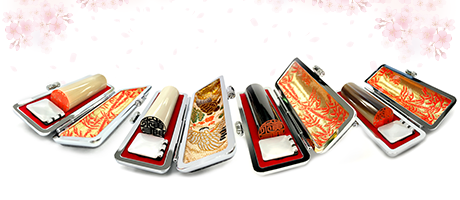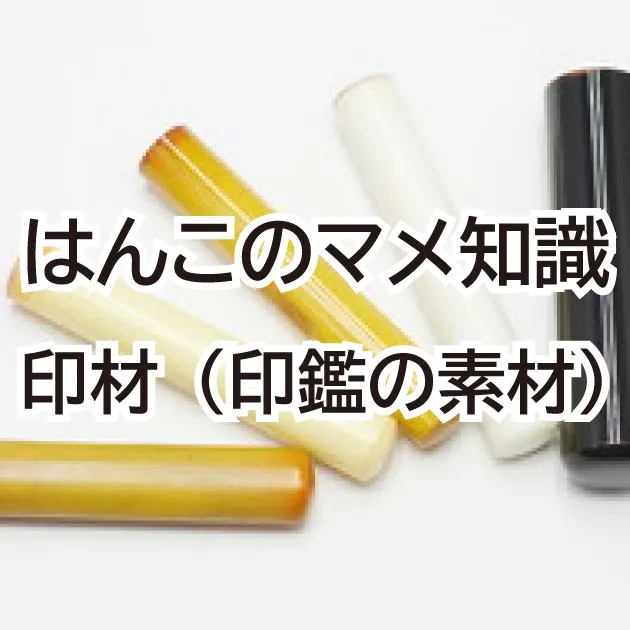There are many other types available, so please contact us.
ivory
It is no exaggeration to say that it is the highest quality HANKO material, so much so that it is also called the "king of stamps." It has high durability, weight, and luster, and blends well with vermilion, so the more you use it, the more you'll love it. In addition, ivory stamps have a high rarity value as their import is restricted by the Washington Convention.
dutch buffalo
This stamp material is particularly hard and sticky among water buffalo, and is known as a superior stamp material.
The name does not originate from the Netherlands, but because it was exported around the world using the Netherlands as a collection point. In addition to stamping material, it is also used around the world as a material for clothing buttons and combs.
At "Hanko Shop 21", we sell Dutch water buffalo (above) with few markings, and white Dutch water buffalo with no markings.
black buffalo
Like Dutch buffalo horns, the seal material is made from processed buffalo horns and is durable and can withstand long-term use.
Typically, black buffalo horn is a material that is dyed jet black, and at Hanko Shop 21 we only use the part that runs through the center of the horn, called "shinmochi."
Titanium
Titanium HANKO are highly advanced and durable, and titanium does not rust and can be washed with water, making it a stamp material (HANKO material) that can be stored cleanly. Titanium HANKO are a stamp material that many people make as important registered seals due to their high quality and characteristics.
Since it is pronounced as ``titanium'' by writing ``fat'' in the ``gold'' character, some people make it as a bank seal because it is said to bring good luck when money increases.
Highly hard and highly durable titanium HANKO are semi-permanent HANKO, so they are recommended for important ``registered seals'' and ``bank seals.'' It is heat resistant, does not burn, can be washed with water, and can be stored for long periods of time.
Mototsuge・柘(Akane)
It has been used as a plant-based stamp material for a long time. It is a dense and hard wood, and the more you use it, the more it becomes glossy and beautiful.
Japanese psylliums are mainly produced in Japan and are classified into Shima pseudo and Satsuma pseudo, and currently Satsuma pseudo is the mainstream. Its distinctive feature is that it is yellowish and glossy compared to tsuge. Japanese psyllium is mainly imported from Southeast Asia and is also called Siamese psyllium. It is characterized by its beautiful wood grain.

*Please note that the photo may differ from the color and size of the actual product.
 日本語
日本語 English
English 简体中文
简体中文 繁體中文
繁體中文 한국어
한국어 ไทย
ไทย Tiếng Việt
Tiếng Việt Indonesia
Indonesia Français
Français Español
Español Português
Português
